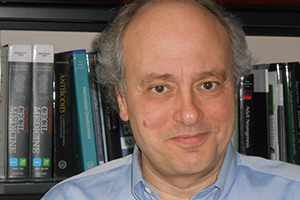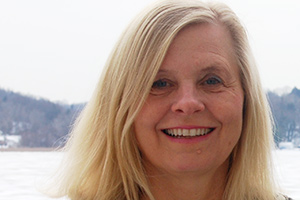About Center for Translational Neuromedicine
Leadership
The heads of Center for Translational Neuromedicine are Professor Maiken Nedergaard and Professor Steve Goldman.
Professor Steve Goldman is internationally recognized for his innovative work using glia progenitors to repair myelin in models of several demyelinating diseases, including MS.
Professor Maiken Nedergaard is known around the world due to her recent research published in Science showing how sleep rids the brain of some of the proteins connected to dementia.
New Approaches for Treating Neurological Diseases
Center for Translational Neuromedicine focuses on developing new approaches for investigating and treating neurological diseases, primarily using the tools of physiology and imaging coupled with cell and gene therapy. Our emphasis is on using these technologies to enable neural and glial cell replacement in the adult brain and spinal cord, as a means of both disease modeling and therapeutic repair. The two labs in the Center are Dr. Goldman’s Division of Cell and Gene Therapy with focus on neural stem cells and glial progenitor biology and the translational applications thereof, and Dr. Nedergaard’s Division of Glial Therapeutics that focuses on astrocytic physiology and pathology, as well as on cerebral blood flow and its glial regulation. Together, the labs are expanding the scope of glial biology, such that disorders long thought neuronal in nature are now being investigated as disorders principally of glial cells, including both astrocytes and oligodendrocytes as well as their progenitors.
Funding
The section is funded by the Novo Nordisk Foundation. The goal is to accelerate the process of bringing the newest research from the lab and into the treatment of patients.
Research Overview
Division of Cell and Gene Therapy (Goldman Lab)
Focus on cell replacement, tumorigenesis, and myelin disease
- Developing an Atlas of Gene Expression by Human Neural Stem and Progenitor Cells
- Transcriptional and Pathway Regulation of Human Glial Tumor Stem Cells
- Transcriptional Events in Remyelination by Human Oligodendrocyte Progenitors
- Inducing Endogenous Progenitors as a Means of Treatment in Huntington’s Disease
- Use of hiPSC and hESC-derived Neural Progenitors for Modeling Neuropsychiatric Disease
- Glial Progenitor-based Cell Therapy in Myelin Disease
Division of Glial Therapeutics (Nedergaard Lab)
Focus on sleep, stroke and traumatic brain and spinal cord injury
- Neuro-glia Interactions
- Glymphatic System
- Evolutionary Changes of Astrocytes
- Functional Hyperemia and the Contribution of Astrocytes to the Regulation of Cerebral Blood Flow
- Glial Responses to Traumatic Brain Injury, Stroke, the Role of Gliosis
- Spinal Cord Injury
- Chronic Pain
- Acupuncture
Division of Neuron-Glia Circuitry (Hirase Lab)
Focus on the impacts of astrocytic signaling.
Contact Us
Center for Translational Neuromedicine
Dr. Steven Goldman:
goldman@sund.ku.dk
Dr. Maiken Nedergaard:
nedergaard@sund.ku.dk


